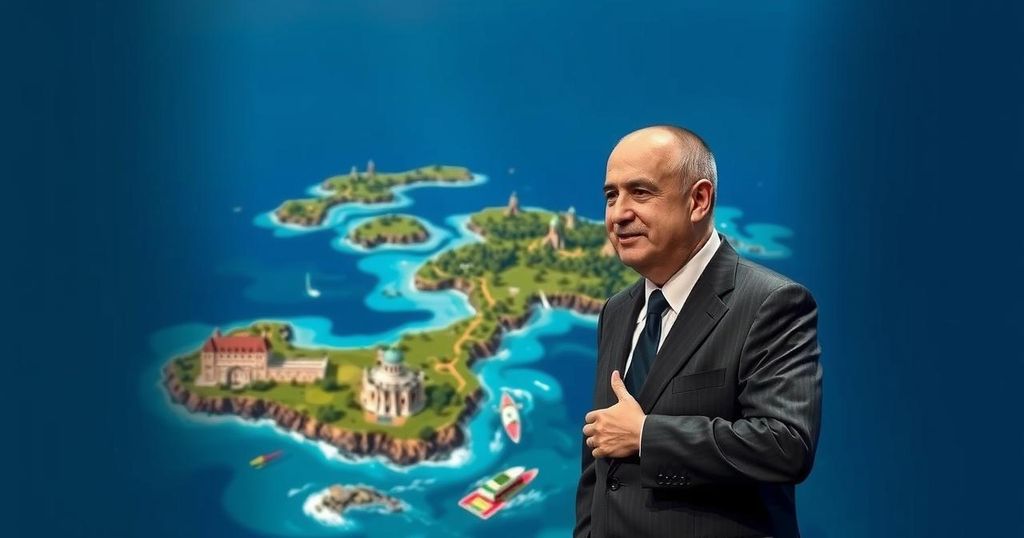At the UN Baku Climate Conference, Azerbaijani President Ilham Aliyev criticized the colonial status of island territories under French and Dutch administration, linking their plight to climate change. He accused colonial powers of neglect and highlighted environmental damage and human rights violations in these areas. His remarks prompted backlash from France and the Netherlands, raising questions about colonial accountability in the context of climate justice.
During the recent UN Baku Climate Conference, Azerbaijani President Ilham Aliyev brought attention to the plight of island regions still under colonial governance by France and the Netherlands, emphasizing their vulnerability to climate change. His remarks included a critique of the neglect these territories face from their colonial administrations, asserting that they are disproportionately impacted by climate change effects, including rising sea levels and biodiversity loss. Aliyev particularly noted the continued suffering of these regions in the context of modern neo-colonial practices, which he linked to ongoing environmental degradation and human rights violations. The conference elicited significant backlash from French and Dutch officials, who deemed Aliyev’s criticisms as unwarranted distractions from the conference’s primary focus – addressing climate change. The Finnish chief negotiator at the conference, Outi Honkatukia, labeled Aliyev’s statements as incomprehensible and damaging to the event’s objectives. Amidst this controversy, Aliyev specifically condemned France’s historical nuclear tests in Polynesia and its contemporary human rights issues in territories like New Caledonia, raising concerns about ecological harm and the treatment of indigenous populations. Further controversy arose as Aliyev criticized the European response to France’s colonial actions, questioning why institutions like the European Parliament remained silent on these human rights abuses. In reaction to his remarks, France opted to withdraw its environmental minister from the Baku conference, while Dutch authorities dismissed Aliyev’s accusations as baseless. The discourse at the conference highlights ongoing tensions between colonial histories and contemporary environmental and social issues faced by affected populations.
The remarks made by President Ilham Aliyev at the UN Baku Climate Conference underscore the intersection of climate change and ongoing colonial legacies affecting island territories. Small island states are particularly vulnerable to the impacts of climate change, which has drawn increased international attention to their plight. Aliyev’s comments point to broader debates surrounding neo-colonialism and the responsibilities of former colonial powers toward these regions, emphasizing the need for decolonization amid rising environmental concerns.
In summary, President Aliyev’s statements at the Baku Climate Conference sparked considerable controversy, addressing the ecological and social consequences of colonial governance on small island states. His critique highlighted the ongoing struggles against neo-colonialism and drew attention to the urgent need for accountability from colonial powers regarding their treatment of these vulnerable populations. The backlash from affected states illustrates the complexities surrounding discussions of environmental justice and historical accountability.
Original Source: aze.media






